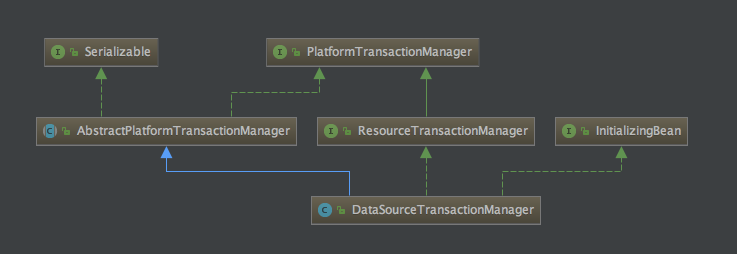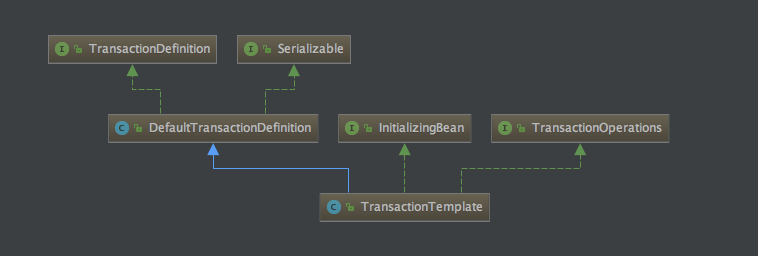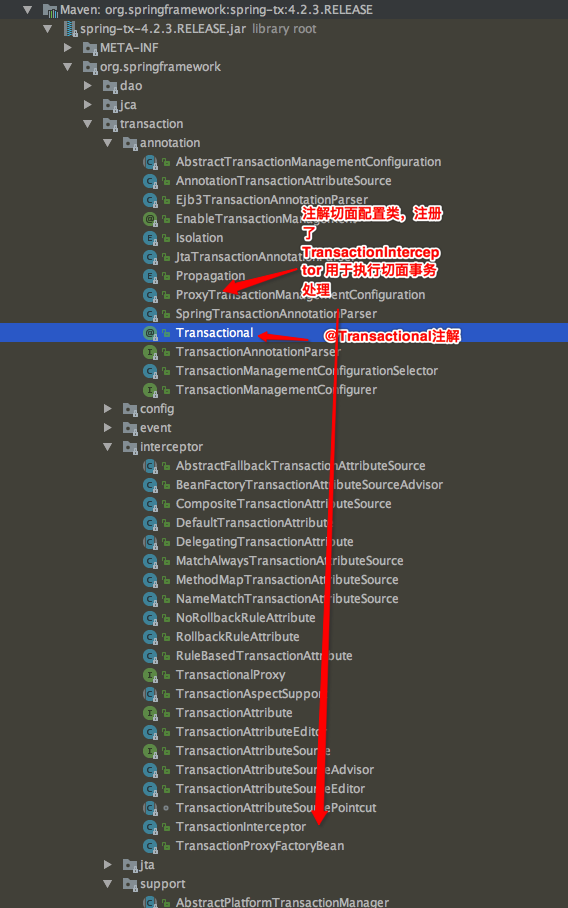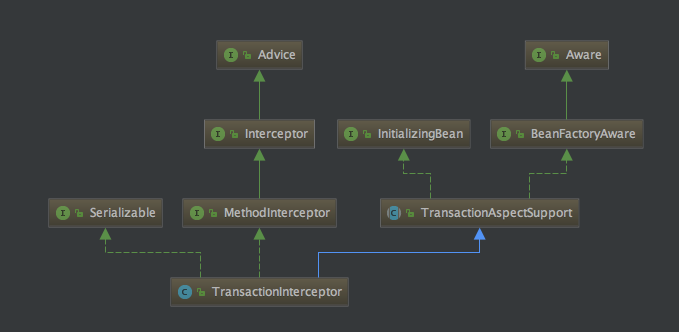知识点分解
核心类对象
| 对象 | 一句话介绍 |
|---|---|
| PlatformTransactionManager | Spring事务的核心底层interface,定义了事务核心方法 |
| AbstractPlatformTransactionManager | Spring标准事务处理流程的抽象基类,定义了Spring事务处理框架 |
| TransactionDefinition | 事务属性相关。事务隔离级别;超时;传播行为;等 |
| TransactionStatus | 事务实例状态对象,可供查询,用于回滚、SavePoint等场景 |
| DataSourceTransactionManager | Spring框架TransactionManager的典型实现 |
| TransactionTemplate | 将编程式上下文多个步骤合并成一个核心的execute方法,方便事务编程 |


PlatformTransactionManager
- jar包
1 | <dependency> |
Spring事务的核心底层interface,定义了事务核心方法:getTransaction, commit, rollback。
AbstractPlatformTransactionManager
- jar包
1 | <dependency> |
Spring标准事务处理流程的抽象基类,定义了Spring事务处理框架。
- AbstractPlatformTransactionManager 利用模板方式定义了Spring标准事务的处理流程,并提供了必须的默认实现,且将doBengin, doSuspend, doResume, doCommit, doRollback等方法开放给继承类实现。
AbstractPlatformTransactionManager 提供了如下事务流程功能
- 确定是否已存在事务
- 处理事务传播行为
- 控制事务的暂停和恢复
- 检查commit上的rollback-only标记
- 在回滚时进行必要的处理
- 触发已注册的事务同步回调。trigger[Before/After][Begin/Commit/Rollback/…]系列,参见:TransactionSynchronizationUtils。
DataSourceTransactionManager
- jar包
1 | <dependency> |
Spring TransactionManager的典型实现类。
继承了AbstractPlatformTransactionManager类,并做了完整的实现。可供编程式事务开发。也可作为TransactionManager的具体实现注入到如TransactionTemplate, Mybatis SqlSessionFactory中去。
TransactionTemplate
- jar包
1 | <dependency> |
TransactionTemplate 提供的是便捷的编程式事务的方法,将编程式上下文多个步骤合并成一个核心的execute方法。
其本身不具备事务管理的机制,需要通过注入PlatformTransactionManager的Bean实现。
1 | public class TransactionTemplate extends DefaultTransactionDefinition |
@Transactional 声明式事务
理解Spring事务的核心对象和配合关系后,再来看Spring框架的声明式事务机制@Transactional就很简单了。


- sprint-tx包中的ProxyTransactionManagementConfiguration会去配置关于@Transactional注解的处理机制。其中核心的是注册了TransactionInterceptor作为切面事务处理类
- 当执行声明式事务的代码块之前,会优先被TransactionInterceptor拦截,先执行TransactionInterceptor#invoke进行事务包围。
- TransactionAspectSupport#invokeWithinTransaction
1 | public class TransactionInterceptor extends TransactionAspectSupport implements MethodInterceptor, Serializable { |
1 | public abstract class TransactionAspectSupport implements BeanFactoryAware, InitializingBean { |
